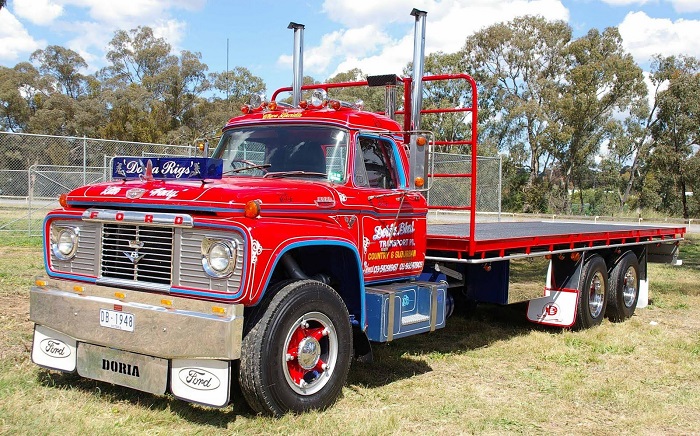As someone who’s gone through the process of buying a used Ford truck (and helped countless friends do the same), I can tell you it’s both exciting and daunting. But fear not! I’m here to share my hard-earned wisdom and help you navigate this journey like a pro. So, buckle up as we dive into everything you need to know about scoring that perfect pre-owned Ford pickup.
Btw, I advise you to check out this site to find some great Ford Truck deals: fordtrucktrader.com
Know Your Needs
Before you start browsing listings, take a moment to consider what you actually need from your truck. Are you looking for a daily driver? A weekend warrior for home improvement projects? Or maybe you need some serious towing capacity for your boat or trailer?
I remember when my buddy Mike was convinced he needed an F-250 Super Duty, only to realize later that an F-150 would have suited his needs perfectly (and saved him a bundle on fuel). Don’t make the same mistake – be honest about your requirements.
Research Different Models and Years
Ford has a long history of truck production, and not all years are created equal. Some standout models to consider:
- F-150: The best-selling truck in America for decades. Reliable and versatile.
- Ranger: Great for those who want truck utility in a smaller package.
- Super Duty (F-250, F-350): For heavy-duty needs and serious towing capacity.
Pro tip: The 2015 F-150 introduced the aluminum body, which significantly reduced weight and improved fuel efficiency. If that’s important to you, consider models from 2015 onwards.
Set a Budget
Used truck prices can vary wildly based on age, mileage, and condition. Be realistic about what you can afford, and don’t forget to factor in ongoing costs like insurance, fuel, and maintenance.
I once got caught up in the excitement of a great deal on a higher-end model, only to realize later that the increased insurance premiums and fuel costs were stretching my budget thin. Learn from my mistake!
Check the Vehicle History
Always, always, always get a vehicle history report. Services like CarFax or AutoCheck can reveal crucial information about past accidents, flood damage, or major repairs.
I’ve seen too many people skip this step and end up with hidden headaches. It’s worth the small investment for peace of mind.
Inspect the Truck Thoroughly
Once you’ve found a potential winner, it’s time for a close inspection. Here’s what to look for:
- Body condition: Check for rust, dents, and signs of previous repairs.
- Tires: Uneven wear can indicate alignment issues.
- Undercarriage: Look for signs of off-road abuse or leaks.
- Engine bay: Check for leaks, corrosion, and general cleanliness.
- Interior: Test all electronics, check for wear and tear.
Don’t be afraid to get your hands dirty. I once spotted a small oil leak that the seller hadn’t mentioned – it ended up saving me from a potentially costly repair down the line.
Take it for a Test Drive
This is crucial. Pay attention to:
- How it handles on different road surfaces
- Any unusual noises or vibrations
- Braking performance
- Transmission shifts (should be smooth)
- 4WD engagement (if applicable)
Take it on the highway if possible. I once test drove a truck that seemed fine around town, but developed a worrying shimmy at higher speeds.
Consider a Pre-Purchase Inspection
If you’re not mechanically inclined, consider paying for a professional inspection. It might cost you $100-$200, but it could save you thousands in the long run.
Negotiate Smart
Armed with your research and inspection findings, you’re in a good position to negotiate. Be fair, but don’t be afraid to point out issues that might affect the price.
Understand the Warranty Situation
If you’re buying from a dealer, understand what (if any) warranty is included. For private sales, you’re usually buying “as-is,” so factor that into your decision.
Don’t Rush
This is perhaps the most important piece of advice I can give. It’s easy to get caught up in the excitement and make a hasty decision. Take your time, compare multiple options, and don’t be afraid to walk away if something doesn’t feel right.
I once passed on what seemed like a great deal because something felt off about the seller’s story. A week later, I found an even better truck that I’ve now had for years with no issues.
Consider Long-Term Reliability
Some Ford truck engines have better reputations for longevity than others. For example, the 7.3L Power Stroke diesel is often praised for its durability, while some early 6.0L Power Stroke engines had well-documented issues.
Do your homework on the specific engine in the truck you’re considering. Forums and owner groups can be great resources for real-world reliability information.
Check for Recalls
Before finalizing your purchase, check if there are any open recalls on the model you’re considering. You can do this easily on the National Highway Traffic Safety Administration (NHTSA) website using the truck’s VIN.
Don’t Forget About Fuel Efficiency
Trucks aren’t known for their great gas mileage, but some are better than others. If you’re planning to use the truck as a daily driver, fuel costs can add up quickly. Consider newer models with more efficient engines or even the hybrid version of the F-150 if fuel economy is a priority for you.
Think About Resale Value
Ford trucks generally hold their value well, but some models and trims retain value better than others. If you think you might want to sell or trade in the truck in a few years, this is worth considering in your purchase decision.
Buying a used Ford truck can be a great way to get a reliable, capable vehicle without breaking the bank. Just remember to do your homework, take your time, and trust your instincts. Happy truck hunting!
